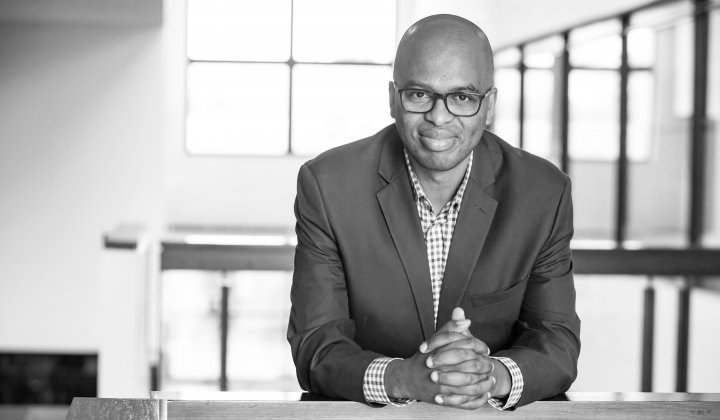After years of prevarication around the issue of climate change, the general consensus among leaders in business, society and government is that the world is facing “one of the greatest ecological and social challenges of the 21st century” as a result of human activities.
As one of the founding deans of the PRME Business Schools for Climate Leadership Africa, a United Nations-supported initiative, I know that this is truly a subject that is entwined in the ethos of our school. That said, it is not a quick – or easy – fix.
To quote Professor Thomas Dietz et al, the factors contributing to climate change are complex, requiring diverse and innovative solutions. As Dietz et al point out, business practices are increasingly coming to the fore as a means of responding to the challenge, alongside political action and corporate governance. Such is the realisation that business has an important role to play, that currently “more than 70% of the largest corporations in the United States participate in the Carbon Disclosure Project, which calls for corporations to publicly report their greenhouse gas emissions”.
There is also a growing awareness that dynamic capabilities, which include the ability to adapt, seize opportunities and “integrate, build, and reconfigure internal and external competences of address rapidly changing environments” are part and parcel of the new way of doing business.
Recognising the complexity of the task ahead, many companies are focusing more seriously on the importance of collective action and collaboration. This trend is drawing attention to the type of leadership needed to accept, address and direct change when it comes to climate adaptation. Many of these traits focus on a systemic approach to leadership which recognises the need to share information and resources “among a network of actors”, to “take into account the relevance of the interactions between social and ecological systems”, “increase adaptive capacity (adaptability) of governance networks concerned with climate adaptation” and, finally, according to Dutch academics Sander Meijerink and Sabina Stiller, to help influence policy.
What does a climate-aware leader look like?
South Africa is alive with strong examples of CEOs who are having a profound impact on their business sector and society as a whole. We know who these big names are: they include the likes of Toyota SA’s Andrew Kirby (the 2022 Business Leader of the Year, according to the Sunday Times Top 100 Companies Awards), Transnet’s Portia Derby, Discovery’s Adrian Gore, and Standard Bank’s Sim Tshabalala. But do we know which CEOs are driving climate leadership?
Investec’s Fani Titi, for instance, is acknowledged locally and internationally as a leader at the intersection of business, society and the environment space. Likewise, Mike Brown and the team from Nedbank continue to be committed to their positioning as the "green bank". Then there is Shameel Joosub of Vodacom, who advised Bronwyn Nielsen during COP27, “We as a corporate need to do our part in terms of reducing our emissions and in terms of moving towards net zero; and we’ve made clear commitments in that regard that we’ll reduce our GHG emissions by 50% by 2025 and try to source, by 2025, 100% of our electricity from renewables.”
But Joosub sees a bigger role for corporates in improving the planet through technology and innovations, through collaboration and shared commitments. For this approach to really gain traction, businesses will need to both lead and follow.
Leaders who listen
The real superstars laying out the terms of engagement and providing much-needed direction in what is a complex ecosystem of systemic impacts are the scientists. As Norwegian academic Torbjørn Gundersen and colleagues explain, “Public trust in science is crucial to a well-functioning democracy and good governance.” While the scientific evidence that have been put forward since the 1960s continues to garner mixed views, in 2021 a global survey showed that 68% of respondents “would trust what scientists say about the environment, a great deal – a more than 10 percentage point increase from 2020 levels”, explained Gundersen.
We saw during the Covid-19 pandemic how experts such as Professors Salim Abdool Karim, Tulio de Oliveira and Helen Rees rose to prominence, alongside scientists such as Dr. Angelique Coetzee. Yet, and despite decades of debate around climate change and its implications, do we know which scientists we should be listening to?
While most of us have heard of the young environmental activist Greta Thunberg (who is not a scientist), few could pick more than a handful of names out of Reuters’ 1 000 most influential climate scientists list, which includes names like Keywan Riahi, Anthony Leiserowitz, Pierre Friedlingstein, Detlef van Vuuren and James Hansen.
There are South Africans in this list too, namely Chris Reason and Mark New from UCT, Guy Midgley from Stellenbosch University, and Mark Jury at the University of Zululand. Other names that spring to mind include water expert Dr. Anthony Turton and the late Ndoni Mcunu, a climate change scientist and advocate for developing women in science and research across Africa. The work of University of Pretoria Professor Emma Archer on the impact on climate change on agriculture and wildlife in the Karoo also stands out, as do experts such as Professor Hannes Rautenbach and Dr. Jane Olwoch.
As was the case with Covid-19, climate change is not a conversation for businesspeople alone – although, as my Stellenbosch Business School colleague Mark Smith recently wrote, business schools will be a source of “many of the key skills needed to address climate change, including specific skills for managing risk, climate change consequences and sustainable innovation”. Any meaningful debate must include scientists and civil society representatives. Climate leadership is an approach that hinges on collaboration and exercising care in who to listen to, who to partner with and where to seek inspiration. It’s about bringing climate champions and climate leaders together, along with the hidden climate champions such as NGOs – the Wildlife and Environment Society of South Africa, Centre for Environmental Rights and World Wide Fund for Nature South Africa come to mind.
By highlighting these individuals and institutions, it is our hope that we will encourage South African business leaders to connect with climate champions and fellow climate leaders to share fresh ideas and best practice in this evolving space. By raising awareness, driving engagement and activity, and amplifying the importance of incorporating climate risk mitigation into the role of both manager and leader, there is more chance that we’ll have more Fani Titis, Mike Browns, and Sim Tshabalalas in the future. Leaders who appreciate the world of known unknowns and unknown unknowns they inhabit and how to make the right trade-offs.



